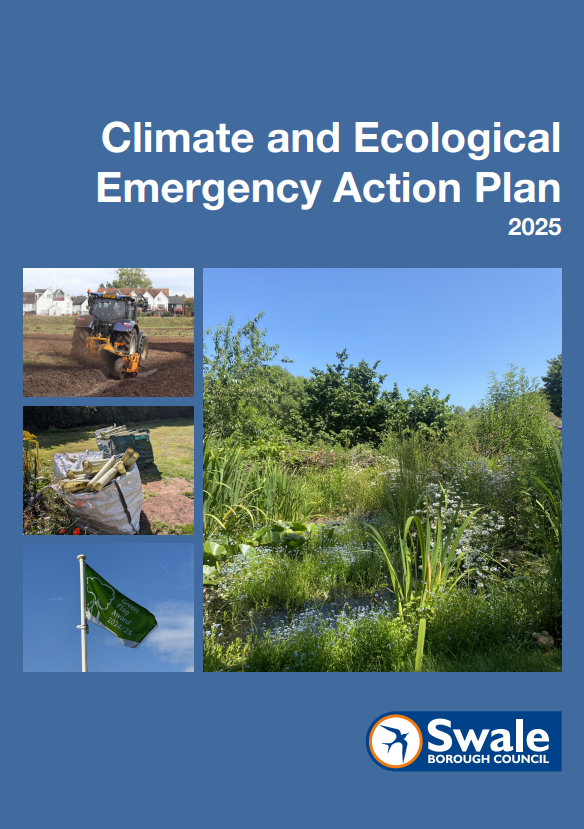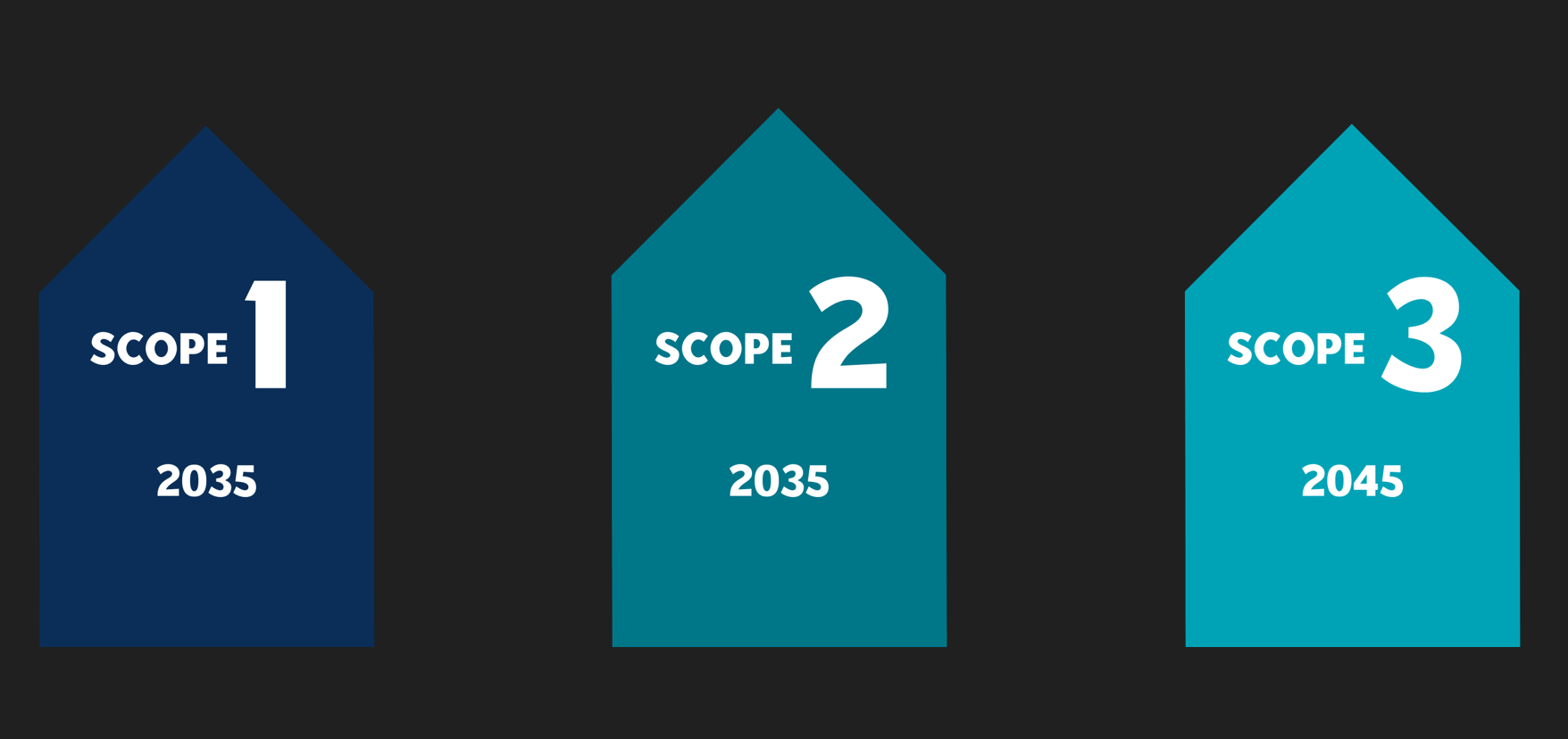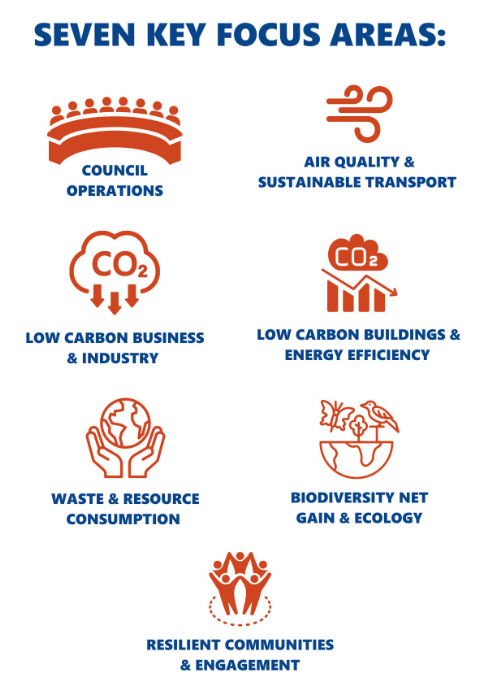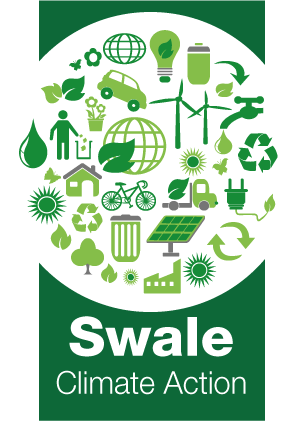Our Declaration
A Climate and Ecological Emergency was unanimously declared by Swale Borough Council on 26 June 2019 which committed the Council to a number of actions
We declared a climate and ecological emergency on 26 June, 2019 to draw attention to the urgent need for effective action to reduce carbon emissions and reverse the decline in biodiversity in Swale.
Throughout 2024 the Council undertook a carbon audit, the finding of which informed the creation of the 2025 Climate and Ecological Emergency Action Plan. This was adopted by Council in March 2025.

Achieving net-zero in our operations
The revised action plan set targets by scope.
Most organisations categorise their emissions by scope. This makes it easier to identify where emissions are coming from, and control the sources.
Scope 1 and scope 2 emissions are those which are directly in our control, and relate to our staff business travel, electricity, and purchased heat and cooling. These will be easier to target through direct measures, meaning that we can set an ambitious target of 2035 for these scopes.
Scope 3 emissions are those which are not directly related to the Council, but instead from the businesses that we purchase goods and services from. Although the Council has influence through our procurement methods, this aspect of net-zero will rely on wider decarbonisation of our supply chains through strong policy from central government.

Achieving net-zero for the borough
In reviewing data on regional emissions, it became clear that the 2019 target of net-zero by 2030 for Swale was unattainable. The new action plan has set a revised target of 2045 for the borough achieving net-zero, which is still ahead of national and international targets.
The Council emits only 0.4% of the boroughs emissions, and as such the 2025 CEE Action Plan changes our view outwards and focuses on the changes we need to see across our communities to effectively deal with climate change and create a healthy, resilient borough. The actions are centred around 7 key focus areas:

